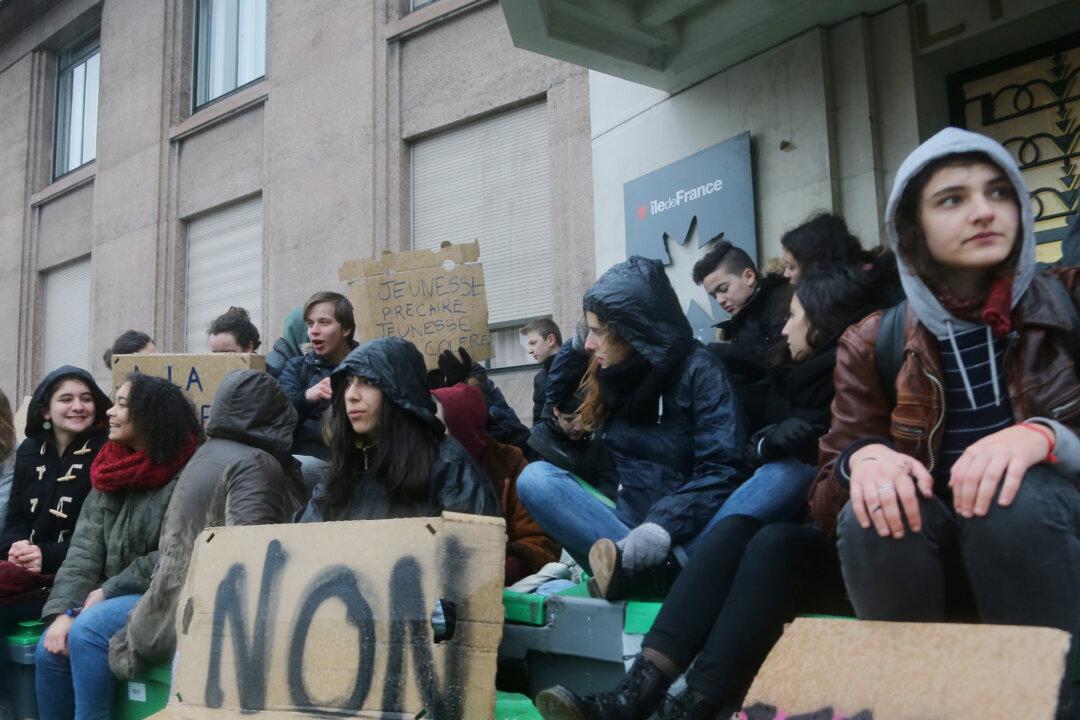PARIS—Angry unions and youths joined forces Wednesday in a day of protests against French President Francois Hollande’s effort to tamper with the country’s 35-hour workweek.
Several union and student organizations called protests in more than 200 cities across France to try to kill the bill which has even divided Hollande’s Socialists.
The protests fall on the same day as rail strikes that are delaying some suburban and long-distance trains—but not local transport.
The contested labor reform would amend France’s 35-hour workweek, voted in 2000 by the Socialists and now a cornerstone of the left. The current Socialist government wants adjustments to reduce France’s 10 percent unemployment rate as the shortened workweek was meant to do.
In 'exceptional circumstances,' employees could work up to 60 hours a week.





